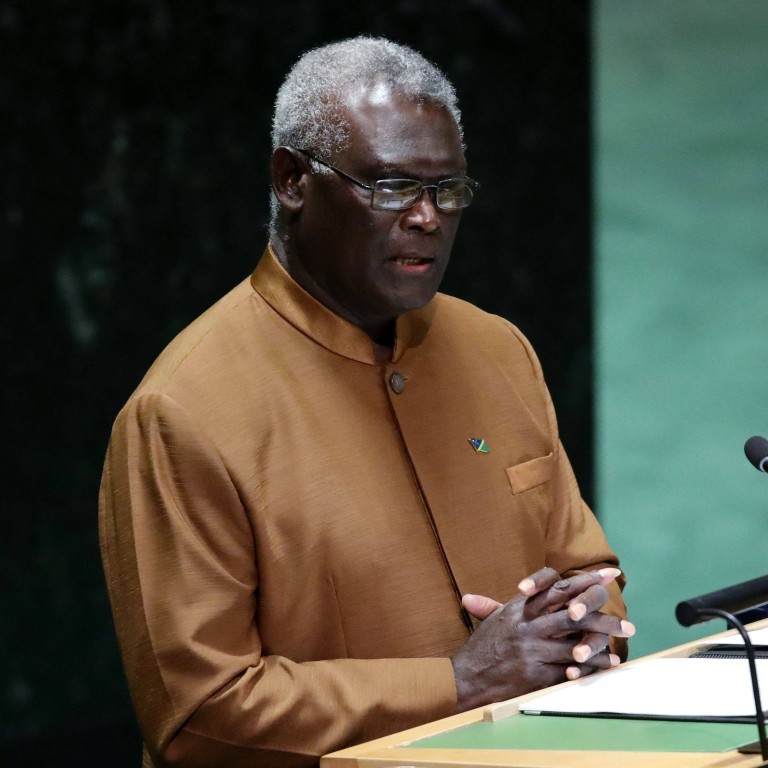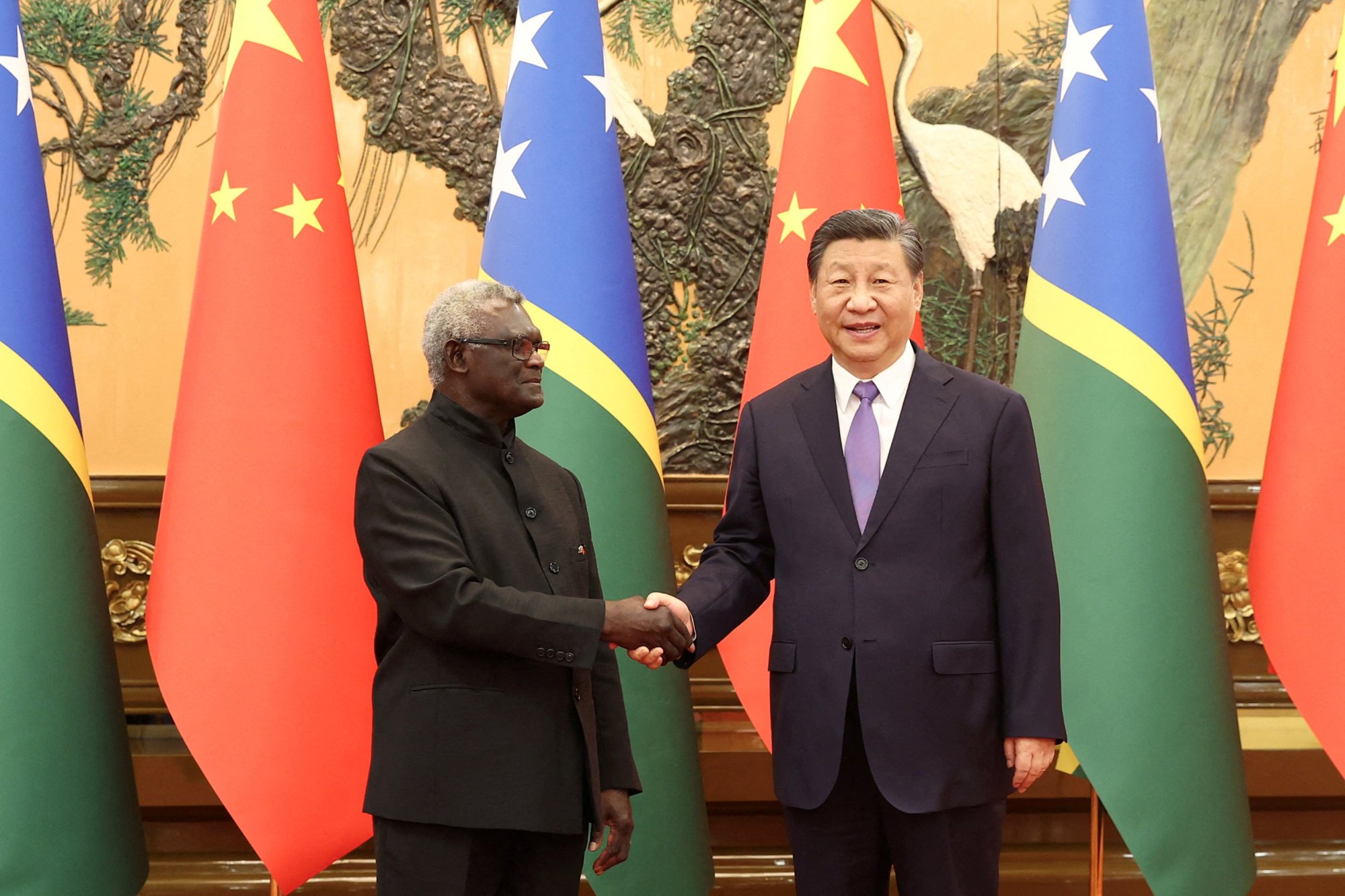
Solomon Islands PM praises China’s governance while criticising democracy as immoral
- Solomon Islands Prime Minister Manasseh told a campaign rally that democracy allows you to ‘do whatever you want’
- He lauded China’s system of government and its economic success at a time when Beijing is trying to increase its influence on the Pacific nation
It comes at a time when Beijing is vying with Australia and the US for influence over the Pacific nation, with Sogavare being the foremost proponent for closer ties with China.
The prime minister, who is widely expected to win reelection on April 17, told a campaign rally in Auki, the capital city of Malaita Province, that democracy allows you to “do whatever you want”.
“Men can marry men, women can marry women – [those] are the principles associated with the values of democracy,” he said.
Solomon Islands’ pro-China leader pledges to continue Australia balancing act
“You have to ask yourself, what values are you comfortable with as a Christian country?”
The Solomon Islands is a highly conservative Christian-majority nation in which same-sex relations are illegal for both men and women.
Sogavare also said China had embraced a “socialist system of government” that was “Chinese style”, which fuelled its economic progress.
“You don’t see beggars in China asking for money … [you] see that in every major city in the United States [and] it’s supposed to be the number one economy in the world,” he said.
Sogavare added his decision to switch diplomatic recognition from Taiwan to China “put the Solomon Islands on the map”.

The Solomon Islands established a bilateral relationship with Beijing in 2019 after cutting ties with Taiwan, attracting large amounts of aid and investment from the economic giant.
Last year, China rolled out the red carpet for Sogavare and signed a raft of deals, including one allowing it to maintain its police presence in the island nation until 2025.
The two sides also signed a security pact in 2022, alarming the US and Australia, who feared that China could use it to establish a military foothold in the South Pacific.
During his speech in Malaita, which opposed switching ties in 2019, Sogavare touted the economic benefits of aligning with China.
“For the past 45, years we have been struggling to make headway in development under [the previous] arrangement [with Taiwan],” he said.
The four-time prime minister said the ruling party’s “superior understanding of the new political reality has allowed him to make astute foreign policy decisions”.
The country hosted the 2023 Pacific Games in a new China-funded stadium that Sogavare projected as a key achievement of his government.
Solomon Islands hosts China-funded Pacific Games amid big-power rivalry
In 2021, he announced plans to suspend the 2023 election to manage the event, triggering anti-government riots that resulted in the capital city of Honiara’s Chinatown being torched.
Peter Kenilorea Jnr, Sogavare’s main rival, has pledged to revoke the security agreement with Beijing if he takes office.
“The burden to develop our beloved Solomon Islands does not rest on the shoulders of any of our development partners, no way, [it] rests squarely on the shoulders of the government and people of Solomon Islands themselves,” Australia’s public broadcaster ABC quoted him saying.
Meanwhile, Sogavare’s party last week accused the electoral commission of not being “impartial” and claimed Australia, a major donor for the agency, was trying to influence the next month’s poll.
Chief electoral officer Jasper Anis rejected the allegations, saying the commission was an independent body.
